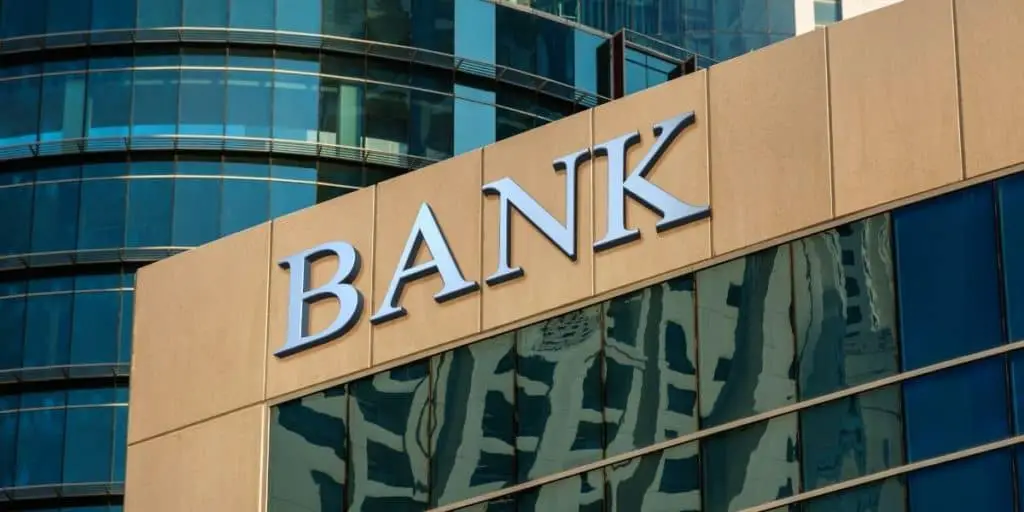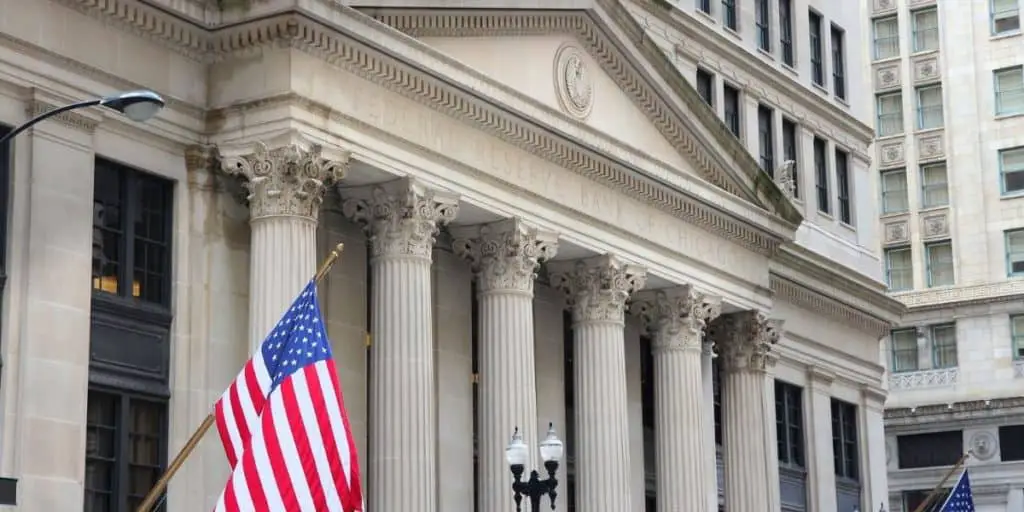Forex is by far the world’s biggest financial market. Many individual and institutional traders enter this market to earn profits by trading currencies. You might wonder whether banks invest in forex.
Banks invest in forex extensively. They execute several trades in it through speculation. Plus, they provide the channel where other market participants trade. While commercial banks invest in forex to make profits, central banks follow economic policies such as setting interest and exchange rates.
Throughout this article, we’ll elaborate on how commercial and central banks trade forex and explain their motivations.
IMPORTANT SIDENOTE: I surveyed 1500+ traders to understand how social trading impacted their trading outcomes. The results shocked my belief system! Read my latest article: ‘Exploring Social Trading: Community, Profit, and Collaboration’ for my in-depth findings through the data collected from this survey!
Table of Contents
Commercial Banks
Banks play a crucial role in forex. They invest in the market to help their stakeholders gain profit like other retailer investors. Plus, they trade currencies to hedge their foreign exchange risks and those of their clients.

Commercial banks constitute a wide range of various trades. They engage in both speculative and commercial transactions. In speculative trades, they act the same as retail traders. They predict the currency pairs’ future movements against each other, sell or buy them, and make a profit.
Commercial activities in forex include the mere buying and selling of one currency for another. For example, when a tourist goes to another country and exchanges their currency to that country’s currency; Or when a company wants to import goods from another country and pays with that country’s currency.
Commercial banks hedge their positions and preserve solvency through trading in forex. They lend currency to their clients and balance assets and liabilities because they need a fixed amount of assets according to regulations. But when currency values change, the value of those assets move, too. So, they have to buy or sell their assets to strike a balance.
Each bank has a dealing desk that processes orders, engages in market-making activities, and manages risks. They use these dealing desks to engage in speculation and forex trading.
Banks trade through a specific channel called the interbank market. Banks of various sizes come together in this network to trade currencies with each other. This interbank works using electronic networks that facilitate trades among forex players.
Banks facilitate forex trades for their customers, too, using the client’s assets. That’s why most major banks have forex accounts available to their customers.
However, not everyone can use this service. That’s because the banks don’t accept small transactions, so they won’t trade for you if your account isn’t large enough. They perform these trades only for themselves or for their large corporate or institutional clients.
That’s why most retail traders have to place their trades with a forex broker. However, no matter if you trade with a bank or a broker, the banks execute most trades since brokers route all orders to the banks and other liquidity providers. These banks don’t engage in speculatory trading and provide the technical and regulatory facilities.
How Do Commercial Banks Trade Forex?
Commercial banks have to follow the same trading rules as other participants. For every position they take, they have to find a counterparty as their trade’s other end. And since the positions are massive, they usually wait for a counterparty to perform these huge transactions. So, they constantly monitor the accumulation periods of enormous buying or selling pressures:
Banks know the future market directions by identifying range-bound markets, a long period of price consolidation that allows markets to know what positions to take. Then, they can accumulate a long position and sell it later at much higher prices.
As market makers, they try to determine the market movements. They manipulate the market in short-term periods by making false directions opposite the current trends. They create false buying and selling pressures and force retail traders to react because they can’t detect the true direction.
That’s why banks don’t use too much technical analysis. They follow fundamental analysis by monitoring charts. Many retail traders try to identify their technical analysis to detect future market movements.
Banks take positions based on the central banks’ policies. So, they know how the market will move in the future. That’s why many retail traders try to copy their trading techniques. They closely observe when the banks enter the market and what position they take.
Do Commercial Banks Affect the Forex Market?
Commercial banks can even intervene in the forex market if they want to. That’s because these banks hold accounts for brokers and central banks. The assets they control have direct influences on exchange rates. So, some major banks can change prices if it’s necessary.
They know about their client’s trading interests. With this sort of insider information, they can detect the market trends. But this advantage can’t protect them against market moves and volatility that nobody can control.
The most important banks involved in forex are the Deutsche Bank, the Royal Banks of Scotland, and Bank of America.
Central Banks
Central banks are government entities that set monetary policies under their governments’ authority. They’re responsible for balancing the supply and demand for their currencies and maintaining their value in response to political and economic developments. To maintain their countries’ currency value, they intervene in the market by lowering or increasing the national currency’s value.
They sell or buy currencies to add or remove liquidity from forex. This way, they move the prices and change the direction of some currency pairs.
Central banks can balance supply and demand through printing money, a practice called quantitative easing. This way, they change a currency’s price relative to others, affecting the market. They also change the interest rates to move their currency value against others.
For example, to increase imports, they lower interest rates, encouraging foreign companies to trade with them. As a result, their currency lowers in value, and people decide to buy it in forex for future profits. These policies greatly affect the market direction and currency pairs.
They also manage the foreign currency supplies by buying certain foreign currencies or selling their local currencies to increase their value in the forex market. They have foreign currency deposits called reserves, or official reserves. These reserves are highly significant in a country’s economy because it shows its ability to repay foreign debts.
They hold different currencies in that reserve, such as the US Dollar, Euro, Yen, and Swiss Franc. But the most important currency is the US Dollar because a major part of international transactions takes place in dollars.
The importance of reserves lies in their role in stabilizing national currencies. Central banks monitor the exchange rates and test them by dealing with the interbank market’s currencies. So, rather than trying to make profits by trading currencies in forex, they ensure the exchange rates align with fundamental economic values.
They don’t trade in forex to earn profits but control their national currency’s value. Most of their actions are due to monetary policies and buying or selling currencies to affect their values.
That’s why market participants monitor central banks closely to see what policies they adopt because their actions can greatly affect market movements.

Author’s Recommendations: Top Trading and Investment Resources To Consider
Before concluding this article, I wanted to share few trading and investment resources that I have vetted, with the help of 50+ consistently profitable traders, for you. I am confident that you will greatly benefit in your trading journey by considering one or more of these resources.
- Roadmap to Becoming a Consistently Profitable Trader: I surveyed 5000+ traders (and interviewed 50+ profitable traders) to create the best possible step by step trading guide for you. Read my article: ‘7 Proven Steps To Profitable Trading’ to learn about my findings from surveying 5000+ traders, and to learn how these learnings can be leveraged to your advantage.
- Best Broker For Trading Success: I reviewed 15+ brokers and discussed my findings with 50+ consistently profitable traders. Post all that assessment, the best all round broker that our collective minds picked was M1 Finance. If you are looking to open a brokerage account, choose M1 Finance. You just cannot go wrong with it! Click Here To Sign Up for M1 Finance Today!
- Best Trading Courses You Can Take For Free (or at extremely low cost): I reviewed 30+ trading courses to recommend you the best resource, and found Trading Strategies in Emerging Markets Specialization on Coursera to beat every other course on the market. Plus, if you complete this course within 7 days, it will cost you nothing and will be absolutely free! Click Here To Sign Up Today! (If you don’t find this course valuable, you can cancel anytime within the 7 days trial period and pay nothing.)
- Best Passive Investment Platform For Exponential (Potentially) Returns: By enabling passive investments into a Bitcoin ETF, Acorns gives you the best opportunity to make exponential returns on your passive investments. Plus, Acorns is currently offering a $15 bonus for simply singing up to their platform – so that is one opportunity you don’t want to miss! (assuming you are interested in this platform). Click Here To Get $15 Bonus By Signing Up For Acorns Today! (It will take you less than 5 mins to sign up, and it is totally worth it.)
Conclusion
Both commercial and central banks invest in forex. Banks play major roles in it by making up the largest portion of trades in this market. Commercial banks have dealing desks that trade for the bank itself and its major clients. They earn profits through speculation like other retail traders.
As major economic authorities, central banks engage in forex trading for different reasons and not for profit. For example, they test economic values in the market and change their national currencies’ values by selling or buying them.
BEFORE YOU GO: Don’t forget to check out my latest article – ‘Exploring Social Trading: Community, Profit, and Collaboration’. I surveyed 1500+ traders to identify the impact social trading can have on your trading performance, and shared all my findings in this article. No matter where you are in your trading journey today, I am confident that you will find this article helpful!
Affiliate Disclosure: We participate in several affiliate programs and may be compensated if you make a purchase using our referral link, at no additional cost to you. You can, however, trust the integrity of our recommendation. Affiliate programs exist even for products that we are not recommending. We only choose to recommend you the products that we actually believe in.
Recent Posts
Exploring Social Trading: Community, Profit, and Collaboration
Have you ever wondered about the potential of social trading? Well, that curiosity led me on a fascinating journey of surveying over 1500 traders. The aim? To understand if being part of a trading...
Ah, wine investment! A tantalizing topic that piques the curiosity of many. A complex, yet alluring world where passions and profits intertwine. But, is it a good idea? In this article, we'll uncork...
